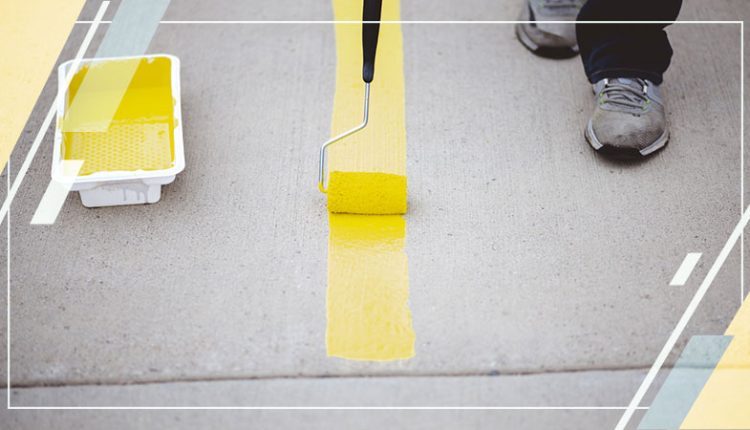Have you ever walked into a space and marveled at its flawless, gleaming floors, wondering how they maintain such pristine beauty amidst daily wear and tear? The answer often lies in one simple yet transformative solution: floor coatings. It plays a crucial role in protecting and enhancing the functionality and aesthetics of various types of floors, including concrete, epoxy, and other industrial flooring surfaces. Whether it’s for commercial, industrial, or residential spaces, the right floor coating can provide durability, chemical resistance, and an attractive finish. Let’s explore their key aspects and significance.
Importance of Floor Coatings
Preventative Maintenance and Protection: Investing in preventative maintenance, such as concrete polishing or industrial floor coatings, can pay dividends in the long run by protecting the underlying structure and preventing issues like cracking, spalling, staining, and shedding
Aesthetic Appeal: These coatings can significantly enhance the aesthetic appeal of floors, making them visually appealing and easy to clean, while also preventing the trapping of allergens.
Durability and Functionality: Floor coatings, such as epoxy and urethane, improve the functionality of floors by providing durability, chemical resistance, and longevity
Most Preferred Types of Floor Coatings
Flooring should be equipped with an appropriate coating to ensure long-lasting protection. The choice of coating material is contingent upon whether the flooring will be utilized indoors or outdoors. Employing diverse coatings serves to safeguard the floor, enhancing its visual appeal. To achieve this desired visual effect, a range of materials must be integrated. The following outlines the various types of coatings available in the market.
● Epoxy Coatings
Epoxy coatings are highly durable and resistant to chemicals, stains, and abrasions. They create a seamless, glossy finish that is popular in commercial and industrial settings like warehouses, manufacturing plants, garages, and showrooms. Epoxy coatings are available in different formulations, including solvent-based, water-based, and 100% solids epoxy, each offering unique advantages in terms of application, performance, and curing time.
● Polyurethane Coatings
Polyurethane coatings offer excellent resistance to UV rays, making them suitable for both indoor and outdoor applications. They are known for their flexibility, which helps prevent cracking and peeling, even in environments with temperature fluctuations. Polyurethane coatings are commonly used in areas exposed to heavy foot traffic, such as retail spaces, stadiums, airports, and commercial kitchens.
● Concrete Sealers
Concrete sealers penetrate the concrete surface to create a protective barrier against moisture, oil, stains, and other contaminants. They come in various formulations, including acrylic, polyurethane, epoxy, and silicate-based sealers, each offering different levels of protection and finish. Concrete sealers are commonly used on driveways, patios, sidewalks, basement floors, and other concrete surfaces to enhance durability and maintain appearance.
● Polyaspartic Coatings
Polyaspartic coatings are a type of fast-curing polyurea coating known for their rapid drying times and high abrasion resistance. They are often used in environments where downtime is limited, such as commercial kitchens, retail spaces, and industrial facilities. Polyaspartic coatings can be applied as clear sealers or pigmented coatings, offering a range of aesthetic options.
● Acrylic Coatings
Acrylic coatings are water-based sealers known for their ease of application, fast drying times, and low odor. They provide a protective film over the surface, enhancing durability and resistance to stains, UV rays, and abrasions. Acrylic coatings are commonly used on decorative concrete, stamped concrete, and exposed aggregate surfaces in both indoor and outdoor settings.
What Factors Should You Consider When Choosing a Floor Coating?
When choosing floor coatings, several key considerations should be taken into account to ensure the selection of the most suitable product for the intended application. These considerations include:
- Surface Preparation: Proper surface preparation is crucial for the success of a floor coating application. It involves cleaning, repairing cracks or imperfections, and etching the surface to ensure proper adhesion.
- Environmental Conditions: Consider factors such as temperature, humidity, and exposure to UV rays when selecting a floor coating system, as these can impact performance and longevity.
- Traffic and Use: Assess the level of foot traffic, equipment use, and potential exposure to chemicals or abrasives to determine the appropriate type and thickness of the floor coating.
- Budget and Longevity: While epoxy coatings may have a higher upfront cost than other options, they offer superior durability as well as longevity, potentially saving money in the long run through reduced maintenance and replacement costs.
Bottom Line
Floor coatings offer a versatile solution for enhancing the durability, appearance, and safety of various types of flooring surfaces. Whether for residential, commercial, or industrial purposes, the right floor coating can provide long-lasting protection against wear and tear, chemical spills, and other environmental factors. From epoxy to polyurethane, each type of coating offers unique benefits suited to different needs and preferences.
Investing in quality floor coatings is not just about enhancing the physical appearance of a space; it’s about protecting assets, ensuring safety, and promoting sustainability. With the right choice of coating and proper maintenance, floors can continue to serve their purpose effectively for years to come, providing both practical and aesthetic benefits to property owners and occupants alike.


